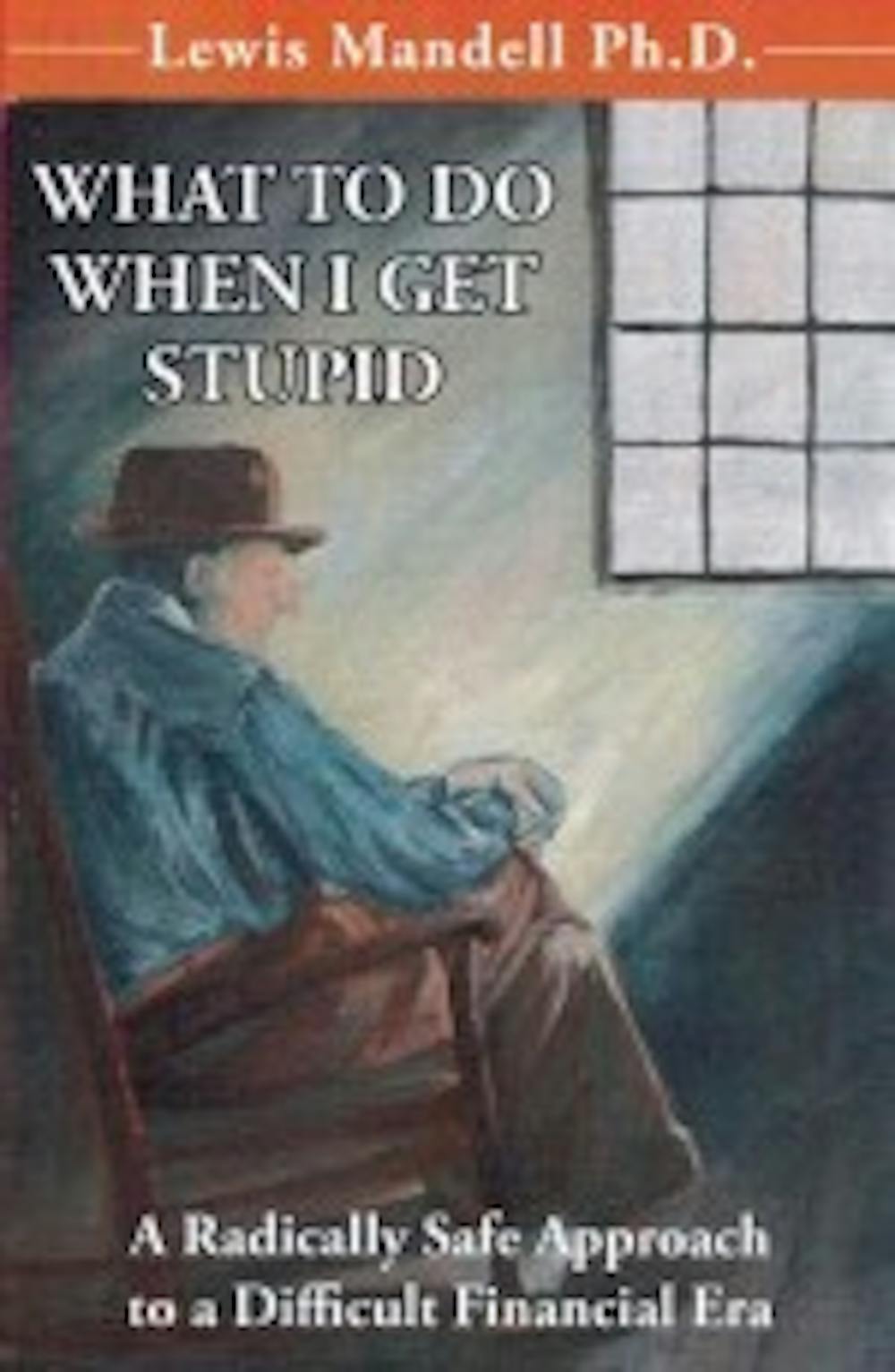Dr. Lewis Mandellwants to change the way the average college student thinks about finances.
Mandell, a professor emeritus of finance and managerial economics in the School of Management, recently published a book titled "What to Do When I Get Stupid: A Radically Safe Approach to a Difficult Financial Era." He said he's aiming to make students conscious of the importance of fiscal matters as they graduate.
"I have never written a book designed for the public," Mandell said. "All the other books have been textbooks or scholarly books, that sort of thing. This was really the first book I've wrote to really try to help people think things through."
There is a strong relation between a person's age and his or her financial reasoning, according to Mandell. He said around the age of 53, a person becomes less likely to make financial decisions with a clear mind and a proper plan, which can leave them in distress.
Mandell conducted research on the subject after seeing his parents handle aging and finances as he hoped to help the baby boomer generation with its finances.
In his book, Mandell attempts to alert older people of the decline of their analytical ability after the age of 53, and he stresses the importance of setting up a financial plan early so they don't end up in a nursing home.
"People who are older are far more interested in finances than people who are younger," Mandell said. "When you're really interested in something, chances are you will not forget what you learned in a book and will go out and do some of the things I recommend."
It is beneficial to begin thinking about your financial future at a young age, Mandell said. The book discusses how young adults can plan for their future and how to manage their current financial situation. One way for young adults to do this is to be wise with their credit, he added.
He believes young adults take on too much credit and loans they can't afford to pay.
One of the top 10 mistakes college students make is applying for credit, according to Forbes. But it doesn't affect everyone the same way.
Kaitlyn Richter, a senior majoring in global gender studies and psychology, said she is giving extra thought to her financial future.
"I'm trying to plan out how I'm going to afford rent and hopefully one day a house with the money I'll be making in non-profits, which is the field I want to go into," Richter said. "I'm also thinking about fellowships and funding for grad school."
Richter said she has one credit card and is staying on top of her monthly payments.
"As a college student, it is very important to acknowledge that as you enter the workforce, you will be faced with a lot of important decisions that will affect you for the rest of your life," Mandell said.
"Let's face it. If your parents end up not being prepared for old age, you as a child may be put in a difficult decision to help your parents."
He said his book is really based around anticipating what's going to happen once you get older and setting yourself up to be prepared for it.
UB's Center for Inclusive Design and Environmental Access (IDeA) is familiar with Mandell's concepts. The center is dedicated to making environments and products more usable, safer and healthier in response to the needs of an increasingly diverse population. Mandell used the facility as a resource fora lot of the information in his book about age-in-place housing.
Jordana Maisel, director of outreach and policy studies at IDeA, said there is an increasing number of older adults who need housing to adapt to their physical needs.
"It is never too late to start thinking about the future, especially in terms of finances," Mandell said.
email: news@ubspectrum.com





